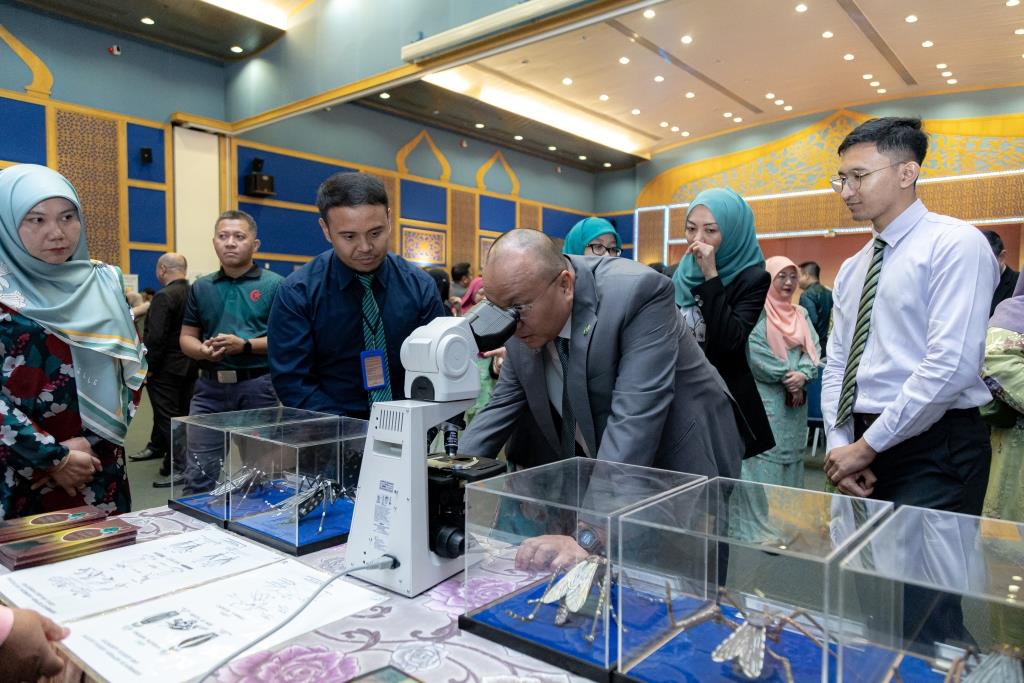Minister of Health, Dato Seri Setia Dr Haji Mohammad Isham bin Haji Jaafar, has warned that climate change could lead to an additional 250,000 deaths annually between 2030 and 2050. The health impacts include a rise in vector-borne diseases such as malaria and dengue, increased heatwaves leading to dehydration and heatstroke, and gastrointestinal illnesses due to a lack of clean water.
Furthermore, food insecurity resulting from decreased agricultural production and escalating mental health issues could significantly affect the healthcare sector and communities at large.
The minister made these remarks at the launch of the Sustainability Initiative, which he officiated as the guest of honour on Thursday. He emphasised that for a nation with limited infrastructure and healthcare systems, immediate action is crucial to empower sustainable practices. The long-term effects of climate change will largely depend on the transformative actions and regulations currently being implemented to reduce carbon emissions and mitigate future risks.
Dato Dr Haji Mohammad Isham referenced the titah of His Majesty Sultan Haji Hassanal Bolkiah Mu’izaddin Waddaulah ibni Almarhum Sultan Haji Omar ‘Ali Saifuddien Sa’adul Khairi Waddien, Sultan and Yang Di-Pertuan of Brunei Darussalam during the 36th UBD Convocation this year, where the monarch highlighted the global challenges of climate change, environmental pollution, food security, rapid digital transformation, cybersecurity, and social inequality. He stressed the importance of creating a secure future for generations to come.

Research from the Brunei Darussalam Meteorology Department (BDMD) indicates that Brunei may experience a temperature increase of 0.4°C every decade over the next 30 years, which could adversely affect public health and the healthcare system. The World Health Organization (WHO) has reported that the healthcare sector accounts for approximately 5 per cent of greenhouse gas emissions. In response, the Ministry of Health (MOH), through the Alliance for Transformative Action on Climate and Health (ATACH), is committed to establishing a climate-resilient health system and a low-carbon sustainable healthcare framework.
At the first hospital workshop titled “Green Possible,” held by the Climate, Health, and Sustainability Taskforce in Temburong, participants explored the WHO’s operational framework for building climate-resilient and low-carbon systems, as well as global standards for green hospitals and Brunei’s Green Protocol.
The launch of the Sustainability Initiative underscores the Ministry of Health’s commitment to promoting a culture of sustainability in healthcare, focusing on energy, water, and paper conservation, as well as effective management of medical waste across hospitals and health centres nationwide.
“Alhamdulillah, since the implementation of the BruHealth system, the Ministry of Health has reduced paper consumption by 1.5 million sheets, equivalent to 3,750 kg of carbon emissions annually. The use of BruHealth for teleconsultations and online appointments has also decreased paper and car usage for visits to health centres, cutting down approximately 5 to 10 kg of carbon emissions,” the minister noted.
Additionally, the Picture Archiving and Communication System (PACS) has minimised film processing and redundant scans, resulting in a reduction of 15 kg of carbon emissions per patient. However, the ministry estimates that clinical waste disposal costs about BND1.8 million annually, with a projected clinical waste of 1,030 tonnes. The ministry aims to reduce this waste by 30 per cent over the next five years.
The minister expressed hope that more individuals and organisations would recognise the importance of making changes to combat the negative health effects of climate change. He extended his appreciation to MOH members, other agencies, higher learning institutions, and NGOs for their commitment to sustainability and raising awareness about climate change’s impact. – LYNA MOHAMMAD



















































